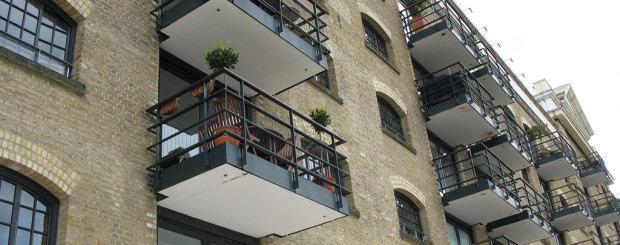Finding Apartments to Let in London
When you’re finally ready to make that exciting and life-changing move to London, you are going to need somewhere to lay your head at the end of a long day of work, study or entertainment. This guide sets out everything you will need to know to secure your city apartment.
Online property searching
Unless you have the luxury of being able to base yourself in the capital itself while property-hunting, you will probably need to use the online property search sites like RightMove, PrimeLocation and Zoopla. With literally hundreds of thousands of London apartments to choose from, you will need to make use of the handy filters and menus to zoom in on the property you want. Every site has its own specific tools, but all will enable you to narrow down by price, type of property and number of beds. Some sites allow you to order the results in ascending or descending price, browse a map, see popular searches, create alerts and save property shortlists. Sites with ‘Draw a Search’ software even provide you with a map where you can draw a box around a desired area.
Estate & Letting Agents
Some London estate agents, have both local offices and a well-designed online search website.
An excellent resource for tracking down properties and the letting agents that provide them is net-lettings.co.uk. This site displays a word map of the different areas of London, colour-coded by fare zone, a tube map and a guide to average property prices in each zone. Clicking on an area brings you to a list of local letting agents and an in-depth description of the area to help you make an informed choice.
How much will an apartment cost?
There is a huge difference in price between areas in London, with properties generally dropping in price the further away from the city centre you live. As a result, you will need to carefully weigh up rental and commute costs to find a suitable area to base yourself. Some expats are happy to spend a little bit extra on accommodation to be closer to the action, while others prefer to stay further away, some straying into the home counties, to secure cheaper rent.
As an illustration of the differences in rental costs, a studio in South Hampstead might set you back £130 a week, while a 2-bedroom apartment in Marylebone is likely to cost nearly ten times that amount at around £1000 a week. Bear in mind that you will also have to budget for a deposit (between one and two month’s rent) and a few hundred in administration costs.
Types of apartment & what to consider
The most economical of properties in London are bedsits, but you would have to be comfortable with sharing a bathroom to consider letting one. Most single expats choose either studio apartments, which consist of one combined living and sleeping area with a separate kitchen and bathroom, or standard flats/apartments with separate bedrooms. Note that the terms flat and apartment are broadly interchangeable, although apartments tend to suggest a higher quality property.
To avoid regret further down the line, you should carefully research your shortlisted properies and decide on what criteria is most important to you. Factors to consider include:
- Location – As mentioned above, a flat off the prime retail areas of Regent Street and Oxford Street will be very expensive but may appeal if you have the budget and love to shop. If you enjoy green spaces, Hampstead Heath or Wimbledon might be attractive.
- Elevation – Do you want to stay at ground level or are you happy with a flat on the first floor or higher. Could you cope with living in a tower block if necessary?
- Style – Are you drawn to contemporary designs built for modern living or are you more comfortable in a period dwelling with some interesting original features? Are you willing to pay more for luxury or are you happy with something very basic?
- View & surroundings – What will you be able to see from your windows? Is there a balcony or terrace? Will you have a private or shared garden or just a yard – if that!
- Do you have a car? If you do, off-street parking could save you lots of money on your insurance.
- Would you feel secure in your flat? Is it well-lit or are there dingy areas that might attract criminals? How far away is your apartment from the nearest station and is the route busy and well-lit?
- How much space do you need to live in and how much natural light does the property admit? Remember that London gets dark early in the winter months.
- Does a managed property appeal to you with 24/7 support?
Once you’ve made your shortlist, it’s time to book some viewings!
Viewing & signing
Be prepared for all sorts of questions to be thrown your way by landlords when you turn up to view a property. Try and arrange at least two visits before making a decision, at different times of the day, to assess the neighbourhood, noise and light levels etc.
Once you have made your choice you should pay a holding deposit as soon as possible so the property can be taken off the market. The next step will be to provide your references and, if all is accepted, your full deposit. If buying through an agency, you will probably need references from a previous landlord (if relevant), bank details and employment information (including employer, salary and job title). The agent will also carry out a credit check to assess whether you are good for your money. In the case of any doubt, be prepared for the agent, landlord or landlady to request a guarantor – somebody of good standing who will sign a document to accept legal liability for paying any rent arrears.
Before paying your full deposit, you should check that this will be placed with a statutory tenancy deposit scheme. This is a legal requirement and offers you protection in the case of a dispute (these are quite common). The landlord or agent will then draw up an inventory – a list of important items and furniture together with a description of their condition. You will need to sign the inventory to acknowledge your agreement. If you feel the inventory is too generous with the condition of the items, take photographs as a record of their initial condition.
Inventory checks may be carried out on a regular basis or may be left until you move out, in which case you should not leave the property until this has been done.
Most properties will be let on an Assured Shorthold Tenancy basis which sets out the rights and responsibilities of both tenants and landlord. An AST gives you a minimum of six month’s fixed accommodation.








